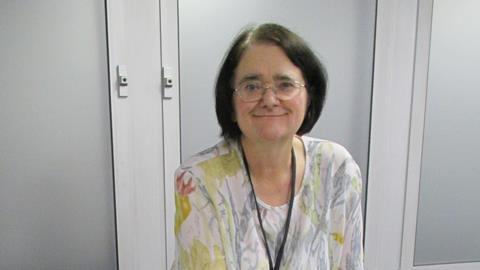London South Bank University
My legal career began in 1974 when I joined the programme for refugees from Chile following the military coup in 1973. We were part of an emerging voluntary sector providing legal services in refugee and asylum, social security, housing and employment law. It was an unconventional start, especially as my degree was in politics. It was another 20 years before I qualified as a solicitor.
I did my CPE and Law Society finals at City of London Polytechnic, followed by articles at Peckham legal aid firm Glazer Delmar. The preparation I received for the finals was all about learning statute, case law and procedure. I am convinced that the practical hands-on learning that students do now is much better preparation.
I work in a front-line service in the Legal Advice Clinic at London South Bank University. We provide advice and assistance in housing, employment, social security, debt and family law. The university employs staff who are solicitors or barristers and they supervise law students who provide help to the public. We never know what matters the clients will bring, and with the legal aid cuts our clients can only get limited help.
Working with refugees from Chile and other Latin American countries in the 1970s gave me a grounding in international human rights and humanitarian law. I am a member of the board of trustees of the Law Society Charity and am able to advise when we receive applications from international charitable NGOs.
In December 2008 I was in Paris for the 60th anniversary of the Universal Declaration of Human Rights, and proudly signed the anniversary document. Another highlight was visiting Colombia in 2008 at the request of Colombian human rights lawyers at risk. We were told that the support of the international legal community literally saves lives by supporting the lawyers in their work.
Since then we have organised an international delegation of around 70 lawyers every two years with the Colombian Caravana. My most recent highlight was to be elected as second vice-president of the Federation of European Bar Associations; and I will be the first female president ever in 2017.
Student volunteers who work in our clinic are told the difference between what our clients hope they can get from our service and what they will get. It is hard for clients to realise that they cannot get the help they want. Sometimes there is no legal remedy, and this is the hardest problem for us in managing client expectations.
The closure of several law centres constitutes an enormous loss to the profession. Law centres opened in the 1970s because of a need for solicitors and barristers to provide advice, casework and representation in areas of social welfare law not provided by high street solicitors. In 2000 we had an aim to increase the number of law centres from 63 to 100.
All that is being eroded now and there are around 40 left.
































No comments yet